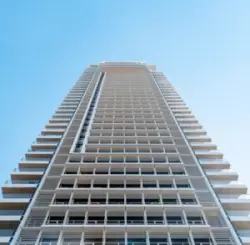
Millions of Americans rent their living space from a landlord. When signing a lease, tenants and landlords each agree to certain terms, some of which are designed to protect the tenant from threats of personal injury on the property. When facilities are not properly maintained by the landlord and personal injury is subsequently incurred by the tenant, they are likely going to want to pursue litigation. Read on for what Nevada tenants should know about premises liability.
The Landlord’s Responsibility
A landlord maintains a certain degree of responsibility for the habitability of their dwellings. Examples of this habitability requirement include ensuring the roof and exterior walls are adequately weatherproofed for the local climate. Additional examples include plumbing, water supply, and electrical systems are all up to local codes. These steps must be taken to reduce the chance of personal injury that may result from accidents or structural failures on the premises.
When a landlord fails in these duties, a tenant may have the ability to sue the landlord for negligence in the event that personal injury results from the substandard living conditions. Consultation with an experienced local personal injury attorney is always the preferred course of action here, as these legal professionals can help plaintiffs structure their case in a way that makes it clear to the judge and court system that the landlord was negligent in their housing maintenance duties.
It is important to note that a landlord is not responsible for every type of personal injury that a tenant incurs on the property. For example, if a tenant injures themselves using a stepladder that they purchased themselves, a landlord is not automatically responsible for damages received. However, if the tenant was attempting to repair something themselves after repeated requests to the landlord, the case for negligence will be more complex and the victim would benefit from consultation with a personal injury attorney.
Understanding Premises Liability
The majority of a landlord’s responsibility for maintaining their dwellings can be encompassed by what Nevada state law refers to as “premises liability.” In order for the tenant/plaintiff to win in court, they must be able to prove the following factors were present:
- The defendant/landlord is the owner of the premises or was in control of the property where the personal injury took place.
- The tenant/plaintiff was on the property with the consent of the defendant.
- A dangerous condition existed on the property, and the defendant either caused, knew about or should have known about it.
- It was the aforementioned dangerous condition that caused the plaintiff to suffer personal injury and/or other damages.
If the landlord/defendant is found guilty of the above items, then compensatory damages are likely to be awarded to the tenant/plaintiff. These types of damages can be used to cover expenses such as medical bills, lost income and future earnings, and/or pain and suffering. In other words, these awards are given by the court to compensate the victim for their loss.
When to Contact an Attorney
For years, the attorneys at H&P Law have been helping injured tenants in Las Vegas and Nevada fight for their rights to fair compensation after incurring personal injury due to a landlord’s negligence. Contact H&P Law today to review your case and take action.




